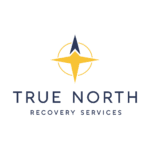Depression is a multifaceted mental health condition that affects millions globally. Characterized by persistent sadness, loss of interest, and a range of emotional and physical problems, depressive disorders can significantly impair daily functioning. Fortunately, a variety of effective treatments are available, tailored to individual needs and circumstances.
Understanding Depressive Disorders
Depressive disorders encompass a spectrum of conditions, including major depressive disorder (MDD), persistent depressive disorder (dysthymia), and seasonal affective disorder (SAD). Symptoms often include:
- Persistent feelings of sadness or emptiness
- Loss of interest in previously enjoyed activities
- Changes in appetite or weight
- Sleep disturbances
- Fatigue or loss of energy
- Difficulty concentrating
- Feelings of worthlessness or excessive guilt
- Recurrent thoughts of death or suicide
Recognizing these symptoms is the first step toward seeking help and initiating treatment.
Treatment Approaches for Depression
Effective management of depression often involves a combination of therapies, medications, lifestyle changes, and support systems. The choice of treatment depends on the severity of symptoms, individual preferences, and specific circumstances.
1. Psychotherapy (Talk Therapy)
Psychotherapy is a cornerstone in the treatment of depression, particularly for mild to moderate cases. Common therapy approaches include:
- Cognitive Behavioral Therapy (CBT): Focuses on identifying and modifying negative thought patterns and behaviors.
- Interpersonal Therapy (IPT): Addresses interpersonal issues and aims to improve communication skills and relationships.
- Behavioral Activation: Encourages engagement in activities that are aligned with personal values and can improve mood.
These therapies can be effective individually or in combination, depending on the individual’s needs.
2. Pharmacotherapy (Medication)
Antidepressant medications are often prescribed for moderate to severe depression. Common classes include:
- Selective Serotonin Reuptake Inhibitors (SSRIs): Such as fluoxetine and sertraline.
- Serotonin-Norepinephrine Reuptake Inhibitors (SNRIs): Such as venlafaxine and duloxetine.
- Atypical Antidepressants: Such as bupropion and mirtazapine.
Medication can be particularly beneficial when combined with psychotherapy, enhancing overall treatment efficacy.
3. Lifestyle Modifications
Incorporating healthy lifestyle changes can support recovery and prevent relapse:
- Regular Physical Activity: Exercise has been shown to reduce depressive symptoms.
- Balanced Diet: Proper nutrition supports overall mental health.
- Sleep Hygiene: Maintaining a regular sleep schedule is crucial.
- Mindfulness and Stress Reduction: Practices like meditation can alleviate stress.
4. Alternative and Emerging Treatments
For individuals who do not respond to traditional treatments, alternative options may be considered:
- Transcranial Magnetic Stimulation (TMS): A non-invasive procedure that uses magnetic fields to stimulate nerve cells in the brain.
- Electroconvulsive Therapy (ECT): Used primarily for severe depression that has not responded to other treatments.
- Novel Therapies: Research is ongoing into treatments like ketamine infusions and psychedelic-assisted therapy.
Severe Anxiety and Depression Treatment
When depression co-occurs with severe anxiety, a comprehensive treatment plan is essential. This may include:
- Combination Therapy: Integrating CBT with medication management.
- Mindfulness-Based Cognitive Therapy (MBCT): Combines cognitive therapy with mindfulness strategies.
- Support Groups: Providing a community for shared experiences and coping strategies.
Addressing both conditions simultaneously can lead to better outcomes.
Does Depression Go Away Without Medication?
Mild cases of depression may improve with lifestyle changes, therapy, and support. However, moderate to severe depression often requires medical intervention. It’s important to consult with a healthcare professional to determine the most appropriate treatment plan.
Depression Interventions and Support Systems
Effective interventions extend beyond individual therapy and medication:
- Peer Support Programs: Connecting with others who have similar experiences can provide comfort and practical advice.
- Family Therapy: Involving family members can improve communication and support within the household.
- Community Resources: Access to community centers and organizations can offer additional support and activities.
These interventions can enhance recovery and provide a network of support.
How Does Therapy Help in the Treatment of Depression?
Therapy provides a safe space to explore thoughts and feelings, develop coping strategies, and address underlying issues contributing to depression. Benefits of therapy include:
- Improved Emotional Regulation: Learning to manage emotions effectively.
- Enhanced Problem-Solving Skills: Developing strategies to tackle challenges.
- Increased Self-Awareness: Understanding personal patterns and behaviors.
Engaging in therapy can lead to lasting changes and improved mental health.
True North Recovery Services: Supporting Mental Health and Addiction Recovery
At True North Recovery Services, we are dedicated to providing comprehensive care for individuals struggling with depression and addiction. Our approach includes:
- Individualized Treatment Plans: Tailored to meet each client’s unique needs.
- Integrated Therapies: Combining evidence-based practices for mental health and substance use disorders.
- Supportive Environment: Fostering a community that encourages growth and recovery.
Depression is a complex but treatable condition. Through a combination of therapy, medication, lifestyle changes, and support systems, individuals can achieve recovery and improve their quality of life. At True North Recovery Services, we are here to support you every step of the way.
If you or someone you know is struggling with depression or addiction, don’t hesitate to reach out. Help is available, and recovery is possible.


